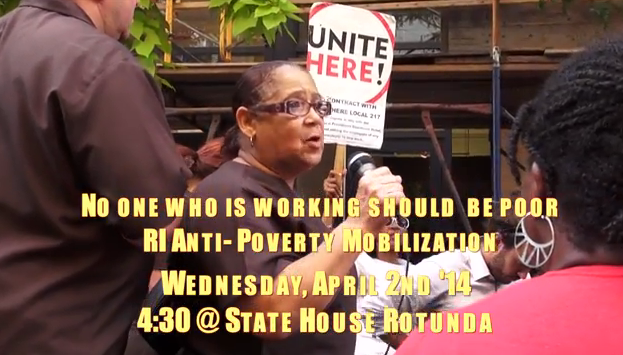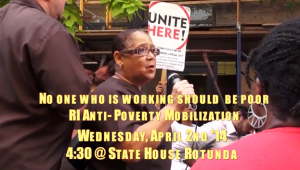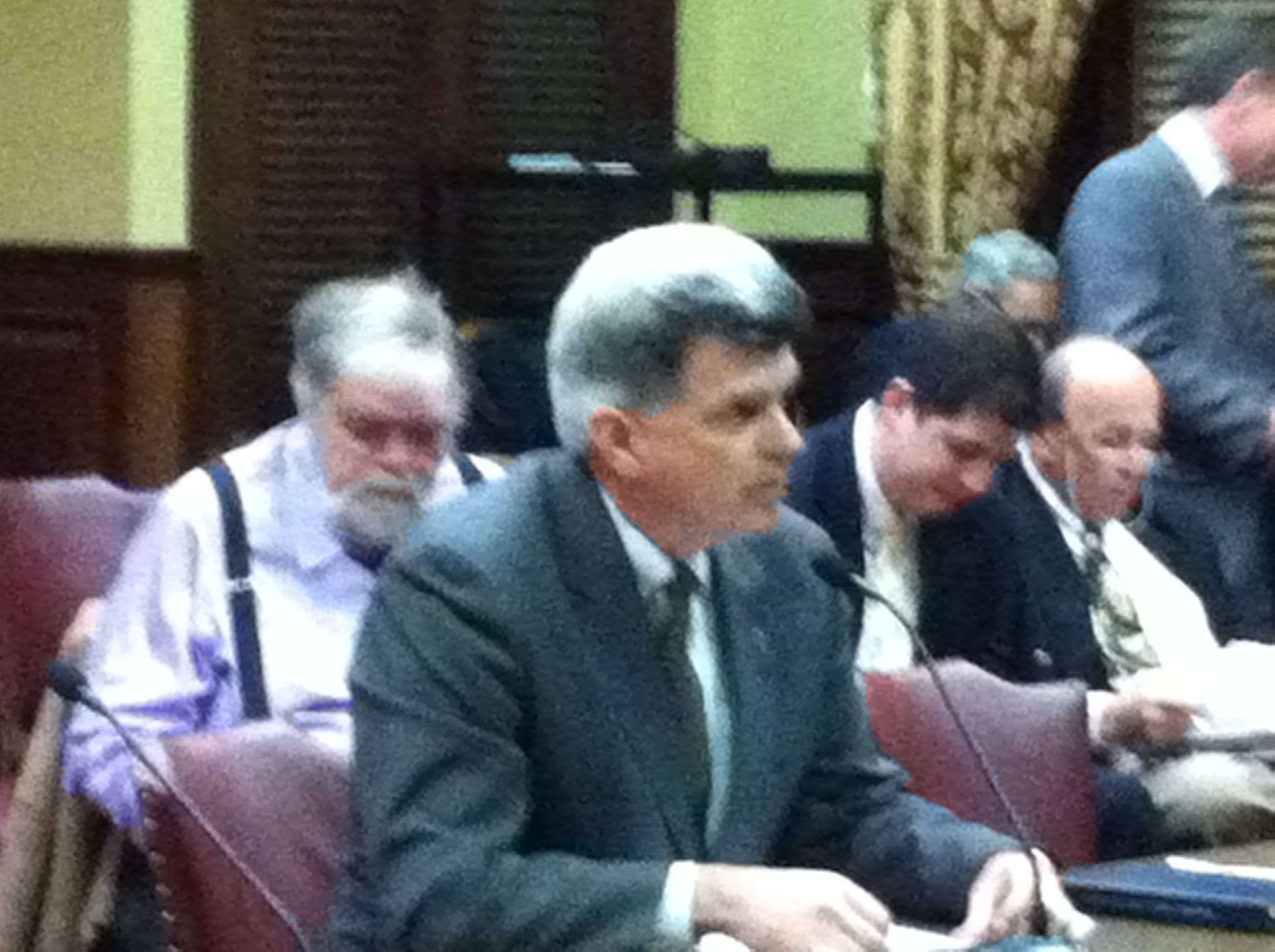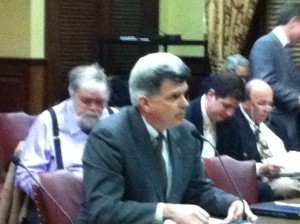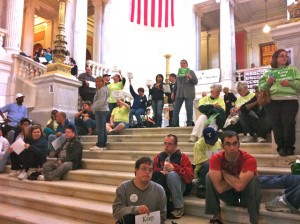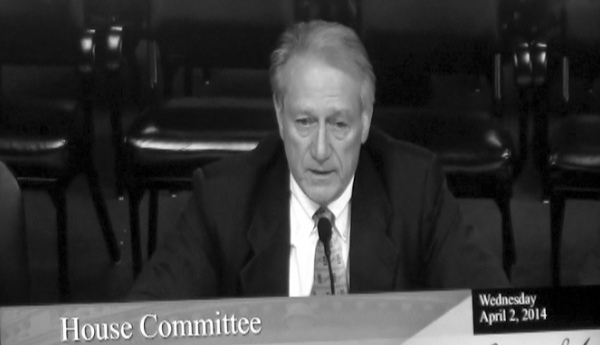
Last evening the RI House Finance Committee heard testimony on two bills that would increase the marginal tax rate on people making more than $200,000 a year. Representative Maria Cimini proposed a 2% increase, from 5.99 to 7.99% on incomes over $250,000, while Representative Larry Valencia proposed a 4.01% increase on incomes over $200,000 for individuals and $250,00 for married couples.
Valencia asked the committee to explain the effectiveness of tax cuts for the rich (starting in 1996) given that these were supposed to bring more jobs to Rhode Island, not less, as evidenced by our high unemployment. Appeals to reason however, were not found persuasive by the committee.
At least ten people spoke in favor of the bills, some telling very moving stories about the way they struggle in a state that continues to cut services and cut assistance to our cities and towns, resulting in higher property taxes. In fact, it’s the property taxes that are hitting these Rhode Islanders the hardest, even as the myopic House Leadership continues to champion a policy of across the board tax cuts, curbs on spending and other austerity measures. The impassioned pleas of struggling Rhode Islanders fell on deaf ears, because appeals to compassion were not found to be persuasive.
Everyone knows that the bills proposed by Cimini and Valencia are going nowhere this year. Chairperson Raymond Gallison, recently appointed to his position by Speaker Mattiello, shaped the discourse by calling up all those in favor of the bills and listening politely, reserving the last word for John Simmons, executive director of a right wing think tank, the Rhode Island Public Expenditure Council (RIPEC). Gallison and Simmons are on a first name basis, and Simmons’ testimony was welcomed as a breath of fresh air.
Simmons simply restated the same things RIPEC says every year. Increasing taxes is wrong. The rich already face a higher tax burden than the poor. We shouldn’t be targeting the job creators. Philosophically, why should we be punishing those who are successful? The rich are rich because they are better than the poor, more deserving than the poor, and more important than the middle class. Here’s Simmons’ closing argument:
“Then there’s the philosophic issue, I guess I want to address that. It’s a little bit different. Is it because we can tax people who can make money and are successful that we should? Is that the philosophy we want for people to come to Rhode Island and grow a business here? If you make money we can take it from you? I don’t know that that’s the right message to send to people who want to come to Rhode Island. It’s the opposite. If you are successful we would like you to come to Rhode Island.”
Note that Simmons is not all that interested in those who already live in Rhode Island. He isn’t talking about improving the lives of Rhode Islanders, instead he’s talking about making Rhode Island a haven for the rich and successful. If Rhode Islanders are lucky, I suppose, we might find jobs shining the shoes and cleaning the yachts of our more deserving citizens.
This is what Gallison, representing House Leadership as Chairperson of House Finance, found persuasive: A naked appeal to everything he wants to believe is true, despite all evidence to the contrary. It’s called motivated reasoning, a process of having a conclusion and then searching for reasons to believe it. No contrary examples, no logic, no amount of suffering and no evidence contrary to the deeply held belief will be truly considered.
So what do you say to the man who eases your mind and continues to guide you down the primrose path of massive economic inequality? What do you say to the man who confirms all your biases and tells you that everything you sincerely wish were true is true and good, despite the nagging fear at the back of your mind that tells you it’s all a lie?
Gallison said, “Thank you very much John, I appreciate it.”

